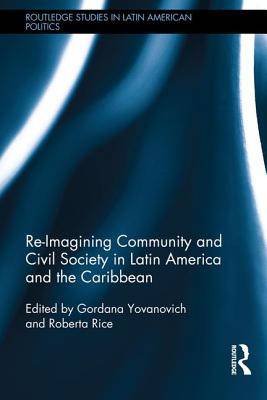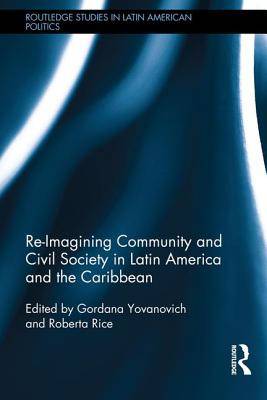
- Retrait gratuit dans votre magasin Club
- 7.000.000 titres dans notre catalogue
- Payer en toute sécurité
- Toujours un magasin près de chez vous
- Retrait gratuit dans votre magasin Club
- 7.000.0000 titres dans notre catalogue
- Payer en toute sécurité
- Toujours un magasin près de chez vous
Re-Imagining Community and Civil Society in Latin America and the Caribbean
Description
Latin American and Caribbean communities and civil societies are undergoing a rapid process of transformation. Instead of pervasive social atomization, political apathy, and hollowed-out democracies, which have become the norm in some parts of the world, this region is witnessing an emerging collaboration between community, civil society, and government that is revitalizing democracy.
This book argues that a key explanation lies in the powerful and positive relationship between community and civil society that exists in the region. The ideas of community and civil society tend to be studied separately, as analytically distinct concepts however, this volume seeks to explore their potential to work together. A unique contribution of the work is the space for dialogue it creates between the social sciences and the humanities. Many of the studies included in the volume are based on primary fieldwork and place-based case studies. Others relate literature, music and film to important theoretical works, providing a new direction in interdisciplinary studies, and highlighting the role that the arts play in community revival and broader processes of social change.
A truly multi-disciplinary book bridging established notions of civil society and community through an authentically interdisciplinary approach to the topic.
Spécifications
Parties prenantes
- Editeur:
Contenu
- Nombre de pages :
- 234
- Langue:
- Anglais
- Collection :
Caractéristiques
- EAN:
- 9781138693371
- Date de parution :
- 26-07-16
- Format:
- Livre relié
- Format numérique:
- Genaaid
- Dimensions :
- 157 mm x 234 mm
- Poids :
- 544 g

Les avis
Nous publions uniquement les avis qui respectent les conditions requises. Consultez nos conditions pour les avis.





